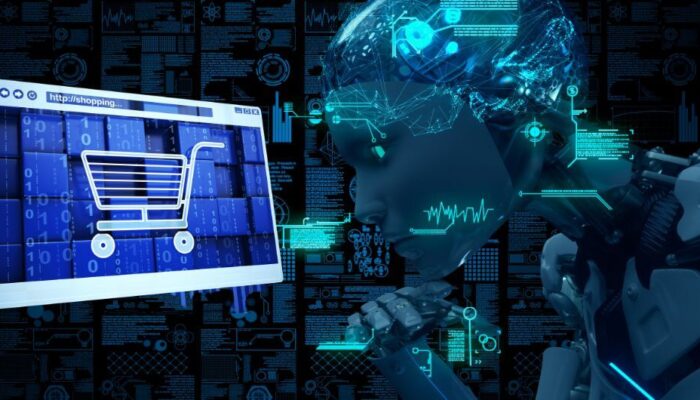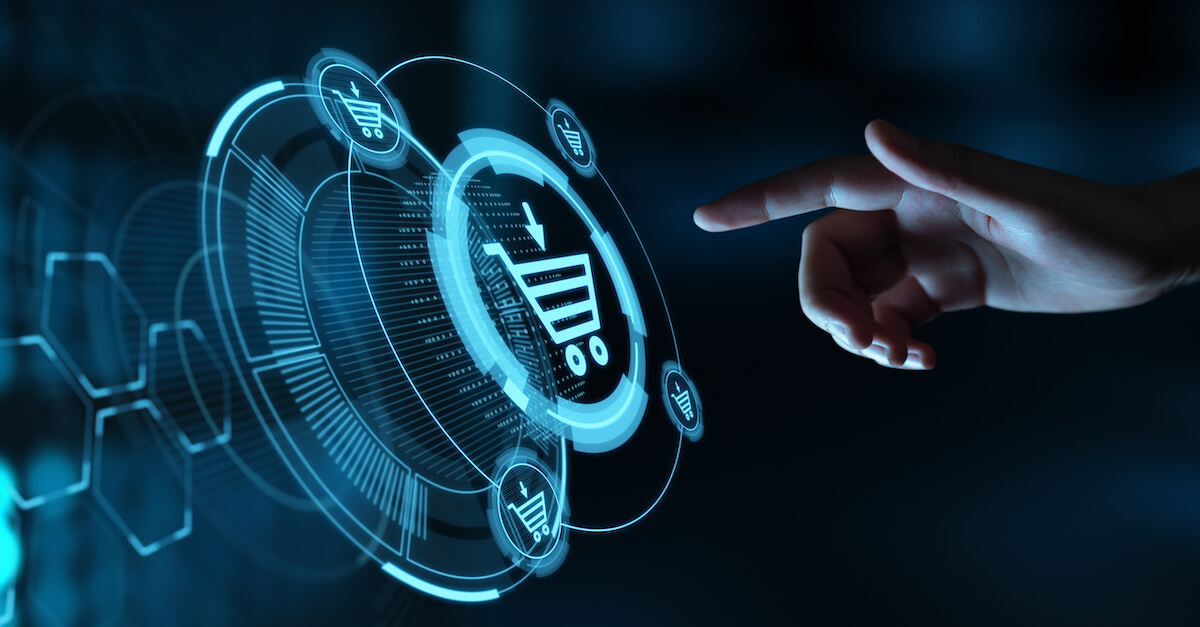Uzone.id – Artificial intelligence (AI) is changing the face of e-commerce. In this digital era, electronic commerce (e-commerce) has become an inseparable part of people’s lives. The ease and convenience of online shopping has significantly driven the growth of this industry.
However, competition in the e-commerce world is getting tighter, and players need to continue to innovate to attract consumer interest and increase sales.
The application of artificial intelligence (AI) in e-commerce presents a great opportunity to improve the shopping experience for consumers and optimize business for e-commerce players.
AI offers various benefits, such as:
- Personalization: AI can analyze consumer data to provide relevant and attractive product recommendations.
- Automation: AI can automate manual tasks such as customer service, inventory management, and price optimization.
- Data analysis: AI can analyze sales data and consumer behavior to gain valuable insights for business development.
- Conversion enhancement: AI can help increase conversions by offering a more personalized and efficient shopping experience.
They use AI for things like:
Product recommendations
E-commerce uses AI to analyze customer data, including purchase history and search behavior, to provide more accurate product recommendations. For example, Amazon uses AI to provide product recommendations based on customer data.
Chatbots
E-commerce uses AI-based chatbots to provide customer support and reduce wait times in serving customers. Chatbots can provide information about products and services, process orders, and handle customer issues.
Sentiment analysis
E-commerce uses AI to analyze customer sentiment through social media data and customer reviews. This helps businesses understand how customers respond to their products and improve their products or services.
Search optimization
E-commerce uses AI to optimize product searches, by analyzing search data and user behavior, and using machine learning-based algorithms to improve the relevance and accuracy of search results.
Personalization
E-commerce uses AI to personalize the customer experience by analyzing customer profile data, purchase behavior, and search history. With this information, e-commerce can provide offers that are more in line with customer preferences and needs.
According to McKinsey, 40% of C-suite executives anticipate spending more on AI in the coming year. That’s because businesses need to begin implementing their own AI strategies at lightning speed.
“The playing field is poised to become a lot more competitive, and businesses that don’t deploy AI and data to help them innovate in everything they do will be at a disadvantage,” said Paul Daugherty, Chief Technology and Innovation Office Accenture.

Here are 5 e-commerce in the world that already use AI features, along with examples of their application:
1. Amazon
Product recommendations: Amazon uses sophisticated AI algorithms to recommend products to consumers based on purchase history, browsing behavior, and demographic data. For example, if you often buy science fiction books, Amazon will recommend new science fiction books that you might like.
Product search: AI helps consumers find the products they are looking for faster and easier by using natural language processing (NLP) technology. For example, if you search for “running shoes for women”, AI will understand your search intent and display relevant results, such as women’s running shoes from various brands and prices.
Chatbots: Amazon uses AI-powered chatbots called “Alexa” to answer customer questions, resolve issues, and provide 24/7 customer support. For example, you can ask Alexa about the status of your order, ask for product recommendations, or even order products just by using your voice.
Targeted advertising: AI helps Amazon target ads to consumers who are most likely to be interested in the products they offer. For example, if you’ve viewed a particular product on Amazon, you may see ads for that product on other platforms like Facebook or YouTube.
2. Alibaba
Homepage personalization: Alibaba uses AI to personalize each user’s homepage based on their interests and purchase history. For example, if you frequently visit the fashion category, your homepage will show more new fashion products and recommendations from your favorite brands.
Image matching: Consumers can search for products by uploading an image of the product they’re interested in. AI will help them find similar products on Alibaba’s platform. For example, if you see an image of a pair of shoes you like in a magazine, you can upload the image to Alibaba and AI will help you find the same or similar shoes.
Voice recognition: Consumers can use voice commands to search for products and make purchases on Alibaba’s platform. For example, you can say, “Find me the latest Samsung smartphone” and AI will display relevant search results.
3. Walmart
Inventory management: AI helps Walmart optimize inventory levels by predicting consumer demand and preventing stockouts. For example, AI can analyze sales data and seasonal trends to predict how many units of a particular product Walmart needs to order to keep it available to consumers.
Pricing: AI helps Walmart determine the optimal price for products based on market data and consumer behavior. For example, AI can analyze the prices of similar products on other platforms and help Walmart determine competitive prices.
Fraud detection: AI helps Walmart detect fraudulent transactions and protect the platform from fraud. For example, AI can analyze purchase and transaction patterns to identify suspicious activity and prevent credit card fraud.
4. JD.com
Robotics: JD.com uses AI-powered robots in their warehouses to automate the packaging and shipping process. For example, robots can pick products from shelves, pack them, and deliver them to shipping areas faster and more accurately than humans.
Chatbots: JD.com uses AI-powered chatbots to answer customer questions, resolve issues, and provide product recommendations. For example, you can ask JD.com’s chatbot about a specific product.
5. Shopify
Shopify is a Canadian e-commerce technology company founded in 2006 by Tobias Lütke, Daniel Weinand, and Scott Lake. Shopify provides an e-commerce platform that allows entrepreneurs and businesses to create and manage their own online stores.
How AI is applied in Shopify:
Intelligent Product Recommendations:
AI analyzes customer purchase data, browsing behavior, and demographics to recommend relevant and interesting products.
For example, if a customer frequently purchases women’s fashion products, Shopify will recommend new women’s fashion products from their favorite brands.
Easier Product Search:
AI helps customers find the products they’re looking for faster and easier using natural language processing (NLP) technology.
For example, if a customer searches for “running shoes for women,” AI will understand the search intent and display relevant results, such as women’s running shoes from a variety of brands and price points.
Efficient Chatbots and Live Chat:
AI-powered chatbots help answer customer questions, resolve issues, and provide 24/7 customer support.
For example, Shopify’s chatbot can help customers with questions about order status, returns, or product recommendations.
Live chat with AI-powered virtual agents is also available to help customers with more complex questions.
Effective Targeted Advertising:
AI helps target ads to customers who are most likely to be interested in the products offered.
For example, if a customer has viewed a particular product on Shopify, they may see ads for that product on other platforms like Facebook or Instagram.
Personalized Shopping Experience:
AI helps personalize the homepage, marketing emails, and product recommendations for each customer based on their interests and purchase history.
For example, if a customer frequently visits the fashion category, their homepage will show more new fashion products and recommendations from their favorite brands.
Price and Promotion Optimization:
AI helps determine the optimal product price based on market data and consumer behavior.
For example, AI can analyze the prices of similar products on other platforms and help Shopify sellers set competitive prices.
AI can also help determine the most effective timing and type of promotions to increase conversions.
Fraud Detection and Security:
AI helps detect fraudulent transactions and protect the platform from fraud.
For example, AI can analyze purchase and transaction patterns to identify suspicious activity and prevent credit card fraud.
Valuable Data Analysis and Insights:
AI helps Shopify sellers analyze sales data, customer behavior, and marketing campaign performance to gain valuable insights.
These insights can help sellers make more informed decisions about business strategy, product development, and marketing.
















